|
|
|
|
|
|
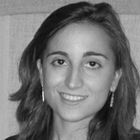 |
| INVITED |
|
 |
| . |
|
|
Mónica Aragüés Peñalba
CITCEA/UPC, Spain
Invited – Plenary Session
Mònica Aragüés Peñalba received the M.Sc. degree in industrial engineering (major in Electricity) in 2011 and her Ph.D. in Electrical Engineering in 2016, both from the School of Industrial Engineering of Barcelona (ETSEIB) of the Technical University of Catalonia (UPC), Barcelona, Spain. Since 2010, she belongs to CITCEA-UPC (Centre of Technological Innovation in Static Converters and Drives), in the Electrical Engineering Department of the UPC. Since April 2018, she is Lecturer of the Electrical Engineering Department of the UPC (Serra Hunter Fellow). She has participated in industrial and research projects related to the grid integration of renewables (offshore wind and photovoltaics) at transmission and distribution level. She is currently the project coordinator of BD4OPEM H2020. Her research interests include renewable integration in power systems, transmission and distribution power systems, wind and solar power plants operation and control, microgrids operation and control, optimization and data science applications to power systems.
|
|
|
|
|
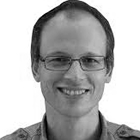 |
| INVITED |
|
 |
| . |
|
|
Adrian Bachtold
ICFO, Spain
Invited – Plenary Session
Adrian Bachtold graduated Ingénieur Physicien at the Ecole Polytechnique Fédérale de Lausanne in 1996 and obtained his PhD from the University of Basel in 1999. He was a post-doctoral researcher at Berkeley and Delft. In2001 he became Chargé de recherche CNRS at the Ecole Normale Supérieure in Paris. In 2005 he went to Barcelona as a CSIC professor and later on as a ICN professor at the Catalan Institute of Nanotechnology. In 2012 he joined the Institute of Photonic Sciences as an ICFO professor. He is the principal investigator of the Quantum Nano-Mechanics group. He is the recipient of several awards, including the IBM award of the Swiss Physical Society, the medal of the CNRS, and an EURYI award. He was awarded the ERC starting grant in 2011 and the ERC advanced grant in 2016.
|
|
|
|
|
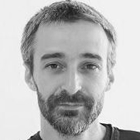 |
| INVITED |
|
 |
| . |
|
|
Franck Balestro
Institut NEEL CNRS/UGA, France
Invited – Plenary Session
Franck Balestro is an assistant professor at Néel Institut – CNRS – Grenoble Alpes University. He received his Ph.D. in 2003 from the University of Alpes Grenoble. He was a post-doctoral scientist at TU Delft from 2003 to 2005. In 2013, he obtained the bronze medal of the CNRS and is a junior member of the french university institut.
|
|
|
|
|
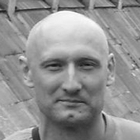 |
| INVITED |
|
 |
| . |
|
|
Denis Basko
LPMMC/CNRS, France
Invited – Plenary Session
2008–present : Centre National de la Recherche Scientifique, Laboratoire de Physique et Modélisation des Milieux Condensés, researcher
2007–2008 : Scuola Internazionale Superiore di Studi Avanzati, Condensed Matter Theory Sector, researcherbr>
2005–2007 : Columbia University, Department of Physics, postdocbr>
2004–2005 : Princeton University, Physics Department, postdocbr>
2002–2004 : International Centre for Theoretical Physics, Condensed Matter and Statistical Physics Section, postdocbr>
2001–2002 : University of Rochester, Chemistry Department, post-docbr>
1998–2000 : Scuola Normale Superiore di Pisa, Classe di Scienze, Ph.D. studentbr>
1991–1997 : Московский физико-технический институт (Moscow Institute for physics and technology), факультет общей и прикладной физики, 126 группа, undergraduate student
|
|
|
|
|
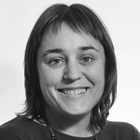 |
| INVITED |
|
 |
| . |
|
|
Núria Bayó
BIST, Spain
Invited – Plenary Session
Head of Academic Programmes & Organisational Effectiveness
|
|
|
|
|
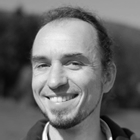 |
| INVITED |
|
 |
| . |
|
|
Frédéric Bonell
Spintec, UGA/CNRS/CEA, France
Invited – Plenary Session
Dr. Frédéric Bonell is a CNRS researcher at SPINTEC in Grenoble. He received a PhD in Physics in 2009 at IJL Nancy (France), then held postdoctoral positions in Osaka University and ICN2 Barcelona under JSPS and Marie Skłodowska-Curie fellowships. In 2017, he was granted a Ramón y Cajal tenure position. In 2019, he was appointed as a research scientist at CNRS and joined SPINTEC. His research in spintronics covers spin tunnelling, voltage-controlled magnetism and spin-charge conversion effects in epitaxial multilayers. His current activities focus on the epitaxial growth and spin-related effects in 2D materials and topological insulators.
|
|
|
|
|
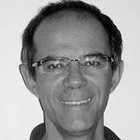 |
| INVITED |
|
 |
| . |
|
|
Olivier Buisson
LANEF, France
Invited – Plenary Session
|
|
|
|
|
 |
| INVITED |
|
 |
| . |
|
|
Sergio Busquets Monge
UPC, Spain
Invited – Plenary Session
Sergio Busquets-Monge was born in Barcelona, Spain. He received the M.S. degree in electrical engineering and the Ph.D. degree in electronic engineering from the Universitat Politècnica de Catalunya (UPC), Barcelona, in 1999 and 2006, respectively, and the M.S. degree in electrical engineering from Virginia Polytechnic Institute and State University, Blacksburg, VA, USA, in 2001. From 2001 to 2002, he was with Crown Audio, Inc. Since 2007, he has been an Associate Professor with the Electronic Engineering Department, UPC. His current research interests include standardized/modular power converter design and multilevel conversion.
|
|
|
|
|
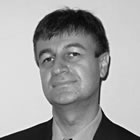 |
| INVITED |
|
 |
| . |
|
|
Mairbek Chshiev
Spintec, UGA/CNRS/CEA, France
Invited – Plenary Session
Prof. M. Chshiev is the Head of Theory and Modeling Group at SPINTEC and carries out research using advanced theoretical approaches in order to understand fundamental physical mechanisms required for the developments of spintronic devices. His background comprises methods in condensed matter theory and computational material science including ab-initio, tight binding, free electron and diffusive approaches. He received his Ph.D. degree from Moscow Lomonosov State University (Russia) in 1997 and his Habilitation Degree from University Joseph Fourier (France) in 2008. After several postdoctoral stays in France and USA between 1998 and 2004, he joined the Center for Materials for Information Technology at the University of Alabama where he stayed as a research scientist until his arrival to Grenoble (France) in 2008 where he joined Spintec Laboratory holding one of the Chairs of Excellence supported by the Nanosciences Foundation. He was an invited researcher at Univ. of Lorraine and CNRS/Thales (France) as well as adjunct associate professor at University of Alabama (USA). In 2018 he was appointed as the Director of European School on Nanosciences and Nanotechnologies (ESONN). He is an IEEE Senior Member and a member of the American (APS) and European (EPS) Physical Societies. In 2020 he was appointed Senior Member of the Institut Universitaire de France (IUF).
|
|
|
|
|
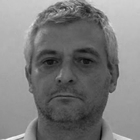 |
| INVITED |
|
 |
| . |
|
|
Ramon Costa
UPC, Spain
Invited – Plenary Session
Ramon Costa-Castelló obtained the master degree in computer science in 1993 from UPC; in 2001 he obtained the PhD degree in computer science from the Advanced Automation and Robotics program at UPC. Currently, he is an Associate Professor at the Automatic Control department from UPC.His current work focusses on the application of automatic control to the modeling and control of energy systems. In recent years he has worked on different projects related to hydrogen technologies, redox flow batteries and the integration of energy storage systems in electrical distribution systems.He is a member of CEA, member of IFAC (EDCOM, TC 9.4 Committee, Automotive Control T.C. 7.1) and IEEE senior member.
|
|
|
|
|
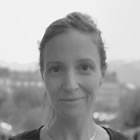 |
| INVITED |
|
 |
| . |
|
|
Géraldine Dantelle
Institut Néel / UGA / CNRS, France
Invited – Plenary Session
Dr. Geraldine Dantelle is a CNRS researcher, specialized on rare-earth doped materials. She obtained her PhD in 2006 from University Pierre et Marie Curie in Paris on glass-ceramics for optical amplification. After a post-doctoral stay at the University of Oxford where she worked on endohedral fullerenes, she joined the CNRS in 2009. She worked for fvie years at the Laboratoire de Physique de la Matière Condensées in Ecole Polytechnique (Palaiseau). Since 2015, she is working at the Institut Neel where she develops synthesis methods to elaborate inorganic nanocrystals with controlled size and crystallinity for LED lighting and biology. She is coordinator of a French young researcher project (ANR project NanophosforLED).
|
|
|
|
|
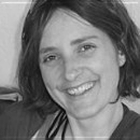 |
| INVITED |
|
 |
| . |
|
|
Cecile Delacour
Institut NEEL CNRS/UGA, France
Invited – Plenary Session
Cécile Delacour is a research scientist at Neel Institut (Grenoble, France), a CNRS laboratory, associated with Grenoble Alpes University UGA. With a background in condensed matter physics, her projects are at the interface between nano and neurosciences and focus on the electrical activity and organization of excitable cells, in particular neurons. For that purpose she is developping dedicated nanodevices arrays (FETs, MEAS etc) and advanced materials to adress neuronal architectures at multiscales. These projects gather multiple expertises in cell culturing, electrophysiology, cells imaging, nanodevices fabrication and instrumentation, signal analysis etc which are at the core of her projects for designing and addressing neurons networks.
|
|
|
|
|
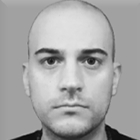 |
| INVITED |
|
 |
| . |
|
|
Adrian Diaz Alvarez
MANA/NIMS, Japan
Invited – Plenary Session
ICYS Fellow working in Neuromorphic Materials at the National Center for Materials Science of Tsukuba, Japan.
|
|
|
|
|
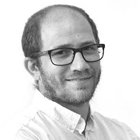 |
| INVITED |
|
 |
| . |
|
|
José Luis Domínguez-García
IREC, Spain
Invited – Plenary Session
Dr. Jose Luis Dominguez-García holds a B.S. and M.S. in Industrial Engineering specialized on Electricity (2009) and a PhD in Electrical Engineering in 2013 from UPC. He was a researcher visitor of the Institute of Energy in Cardiff University, University of Strathclyde in Glasgow, and University of Huddersfield, UK, in 2011, 2016 and 2018, respectively. Currently, he is the Head of Power Systems group from the IREC, institution he joined in 2010 as researcher. The group works on integration and control of renewable energy (specially, wind and PV) and power electronics, as well as communications, distribution grid management and system resilience. He actively participates and coordinates several industrial and research projects, including more than 15 industrial contracts as PI and a number of research projects (being the PI of 10 of them, including being the coordinator of INCITE and COREWIND). He has been awarded with the Distinguished Visitor Fellowship from the Royal Academy of Engineering of UK. He is member of the Editorial Board of international journals as Electrical Engineering (Springer), Sustainability (MDPI), Clean Technology (MDPI) and Journal of Electrical and Computer Engineering (Hindawi). He is author and co-author of 40 journal papers, 5 book chapters, two patent applications and 2 software registration, as well as several conference and workshops participations.
|
|
|
|
|
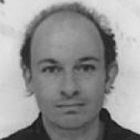 |
| INVITED |
|
 |
| . |
|
|
David Ferrand
University Grenoble-Alpes (UGA), France
Invited – Plenary Session
David Ferrand is Professor at University Grenoble-Alpes (UGA) and has more than 10 years of experience in physics of semiconductors as a specialist of spin physics in semiconductor nanostructure. His interests includes magneto-optical spectroscopy of semiconductor nanostructures and optical and magnetic properties of diluted magnetic semiconductors; He is co-author of 64 publications in international journals and conferences. He has advised and co-advised 7 PhD theses defended at UGA. He became a junior member of the Institut Universitaire de France (IUF) in 2011. He is responsible of the Master programme “Nanophysics-Nanostructures” at UGA since September 2012. Within the master program he is the local coordinator at UGA in Grenoble.
|
|
|
|
|
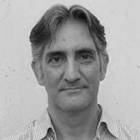 |
| INVITED |
|
 |
| . |
|
|
Luis Fonseca
IMB-CNM (CSIC), Spain
Invited – Plenary Session
Dr. Luis Fonseca was born in Barcelona, Spain, in 1966. He received his Ph.D. degree in Physics from the Autonomous University of Barcelona in 1992. He has developed his whole professional career inthe National Center of Microelectronics (CNM). After a first research period on thin dielectrics, heworked as a process engineer, being in charge of the diffusion and deposition areas of the CNMproduction facilities, till he joined the Microsystems department as a full senior researcher in 2001.Nowadays he is leading the ‘MicroEnergy sources and Sensor Integration’ group, which deals with gassensors, Si nanowire based thermogenerators, and micro fuel cells. He has participated in tens ofnational and international projects dealing with micronanotechnologies and has published more than80 papers. He has coordinated the FP7 SiNERGY project (FP7-NMP-2013 GA 604169), recently finished,which focused in Silicon friendly materials and device solutions for microenergy applications.
|
|
|
|
|
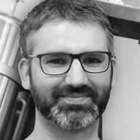 |
| INVITED |
|
 |
| . |
|
|
Pol Forn
IFAE, Spain
Invited – Plenary Session
Dr. Pol Forn-Díaz leads the Quantum Computing Technology group at the Institute for High Energy Physics in Barcelona since 2019. The group focuses on using superconducting qubits applied to quantum annealing, quantum optics in the ultrastrong coupling regime, and their interaction with high energy physics. Dr. Forn-Díaz obtained his PhD from TU Delft, under the supervision of Prof. Hans Mooij, one of the inventors of the superconducting flux qubit. After a postdoc in cold atoms at Caltech in the Kimble lab, he went on to a second postdoc at IQC Waterloo co-supervised by Prof. C. M. Wilson and Prof. A. Lupascu working on microwave quantum optics and superconducting qubits. In 2017, Dr. Forn-Díaz returned to Barcelona to set up a new quantum computing program together with experts in quantum algorithms such as Prof. J. I. Latorre (University of Barcelona) and Dr. A. Garcia-Saez (Barcelona Supercomputing Center). The three of them co-founded the startup Qilimanjaro Quantum Tech, which develops coherent quantum annealers for realistic short-term applications. Dr. Forn-Díaz is the coordinator of the FET-Open consortium AVaQus to develop coherent quantum annealers, and the Quantera consortium SiUCs to develop quantum technologies in the ultrastrong coupling regime.
|
|
|
|
|
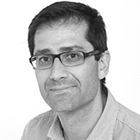 |
| INVITED |
|
 |
| . |
|
|
Jose Antonio Garrido
ICREA/ICN2, Spain
Invited – Plenary Session
Jose A. Garrido is an ICREA Research Professor working at the Catalan Institute of Nanoscience and Nanotechnology (ICN2) in Barcelona, and head of the Advanced Electronic Materials and Devices group, where he explores novel electronic materials, such as graphene and other 2D materials, and their potential in electronic and bioelectronic applications. He has a PhD on Telecommunication Engineering by Universidad Politécnica de Madrid and a Habilitation degree by the TU München. He has pioneered the use of 2D materials such as graphene for application in bioelectronics and neural implants. He leads several EU and Spanish projects aimed at developing neural interfaces for bidirectional communication with the nervous systems. Jose A Garrido is co-founder and Chief Scientific Officer of INBRAIN Neuroelectronics, a spin-off of ICN2 and ICREA that develops medical solutions based on innovative graphene technologies.
|
|
|
|
|
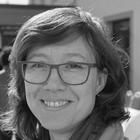 |
| INVITED |
|
 |
| . |
|
|
Daria Gusakova
Spintec, UGA/CNRS/CEA, France
Invited – Plenary Session
Joined Spintec in 2010 as CNRS researcher. My main expertise are spin transport theories and magnetic dynamics from macrospin to micromagnetic approaches. I actively contribute to the development of an open-source multi-physics software for spintronics modeling. This multidisciplinary project, emerged on the basis of the finite element micromagnetic code feeLLGood, benefits now from the collaboration between Spintec and Neel Institute in Grenoble. Its recent extensions concerns the diffusive spin transport equations, multi-threads parallel calculation and dedicated website
|
|
|
|
|
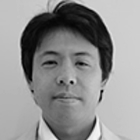 |
| INVITED |
|
 |
| . |
|
|
Ryoma Hayakawa
MANA/NIMS, Japan
Invited – Plenary Session
Ryoma Hayakawa is a senior researcher at International Center for Materials Nanoarchitechtonics (WPI-MANA) of National Institute for Materials Science (NIMS). He received his Ph.D in 2006 in Engineering from Osaka Prefecture University. He then earned a postdoctoral fellowship from Japan Society for the Promotion of Science (JSPS) in 2006. Thereafter, he held positions as a fellow at International Center for Young Scientist (ICYS) in 2010 and an MANA independent researcher in 2012. Currently, he works in the field of molecular electronics with his special interests in the development of attractive molecular devices.
|
|
|
|
|
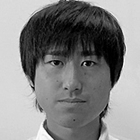 |
| INVITED |
|
 |
| . |
|
|
Takuya Iwasaki
MANA/NIMS, Japan
Invited – Plenary Session
Takuya Iwasaki is the Independent Scientist at International Center for Materials Nanoarchitechtonics (MANA) of National Institute for Materials Science (NIMS). In 2017, he received his Ph.D. degree in Materials Science from Japan Advanced Institute of Science and Technology (JAIST) and completed the Research Co-supervision Programme undertaken in collaboration with the Univ. of Southampton. He was the Japan Society for the Promotion of Science (JSPS) Fellow (2017-2018), International Center for Young Scientists Research Fellow at NIMS (2018-2020). His research interest is quantum transport phenomena in nanostructure devices based on two-dimensional materials and heterostructures.
|
|
|
|
|
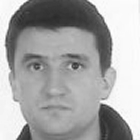 |
| INVITED |
|
 |
| . |
|
|
Xavier Jordà
IMB-CNM/CSIC, Spain
Invited – Plenary Session
Xavier Jordà was born in Barcelona, Spain. He received the B.S. degree from the Universitat Autònoma de Barcelona, Bellaterra, Spain, in 1990 and the Ph.D. degree from the Institut National des Sciences Apliquées de Lyon, France, in 1995. From 1990 to 1995, he was with the Centre de Génie Eléctrique de Lyon-Equipe de composants de Puissance et Applications, Lyon, where he worked on vector control of induction motors, three-phase pulsewidth-modulation methods, and ac drives. Since 1995, he has been with the Power Devices and Systems Group, at Institut de Microelectrònica de Barcelona-Centro Nacional de Microelectrònica (IMB-CNM), Spanish Research Council (CSIC). He has authored or coauthored more than 200 research papers published in journals and conference proceedings and holds 4 licensed patents. His current research activity deals with the integration, thermal management and electrothermal characterization of power semiconductor devices and systems.
|
|
|
|
|
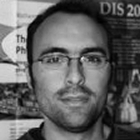 |
| INVITED |
|
 |
| . |
|
|
Bruno Juliá Díaz
Universitat de Barcelona, Spain
Invited – Plenary Session
Bruno Julià-Díaz is a professor in the Department of Quantum Physics and Astrophysics of the University of Barcelona. He obtained his PhD at the University of Salamanca in 2003, having subsequently carried out several postdoctoral stays at the University of Helsinki (2003-2004), the Center de l’Energie Atomique (2004-2005) and the University of Pittsburgh (2005). He has been a Juan de la Cierva researcher (2006-2009) at ICFO and a Ramon y Cajal researcher (2012-2017) at the UB. From 2017 to 2021 he was assistant professor at the UB. His research ranges from nuclear and hadron physics to ultra-cold gases and quantum many-body physics
|
|
|
|
|
 |
| INVITED |
|
 |
| . |
|
|
Bruno Juliá Díaz
Universitat de Barcelona, Spain
Invited – Plenary Session
Bruno Julià-Díaz is a professor in the Department of Quantum Physics and Astrophysics of the University of Barcelona. He obtained his PhD at the University of Salamanca in 2003, having subsequently carried out several postdoctoral stays at the University of Helsinki (2003-2004), the Center de l’Energie Atomique (2004-2005) and the University of Pittsburgh (2005). He has been a Juan de la Cierva researcher (2006-2009) at ICFO and a Ramon y Cajal researcher (2012-2017) at the UB. From 2017 to 2021 he was assistant professor at the UB. His research ranges from nuclear and hadron physics to ultra-cold gases and quantum many-body physics
|
|
|
|
|
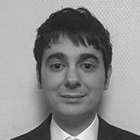 |
| INVITED |
|
 |
| . |
|
|
Vasileios Karanikolas
NIMS, Japan
Invited – Plenary Session
Vasileios Karanikolas received the undergraduate and M.Sc. degrees from the Physics Department, University of Patras, Patras, Greece, in 2007 and 2009, respectively, and the Ph.D. degree from the Physics Department, Trinity College Dublin, Dublin, Ireland, in 2016.He is a ICYS Fellow in National Institute for Materials Science. His research interests lie in theoretical studies in condensed matter physics, nanophotonics, quantum electrodynamics and quantum optics, with an emphasis to future applications on quantum technologies.
|
|
|
|
|
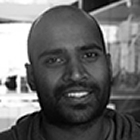 |
| INVITED |
|
 |
| . |
|
|
Roshan Krishna Kumar
ICFO, Spain
Invited – Plenary Session
|
|
|
|
|
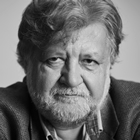 |
| INVITED |
|
 |
| . |
|
|
Maciej Lewenstein
ICFO, Spain
Invited – Plenary Session
Maciej Lewenstein graduated as MSc at Warsaw University in 1978 and PhD at Universität Essen in 1983. He was research fellow in Essen, at Harvard, Commisariat a l'Énergie Atomique in Saclay and at Joint Institute for Laboratory Astrophysics at Boulder. He was on faculty of Centre for Theoretical Physic in Warsaw (1986-1994), CEA in Saclay (1995-1998), of the Leibniz University Hannover (1998-2005). In 2005 he moved to Catalonia as ICREA Research Professor at the Institut de Ciències Fotòniques in Castelldefels. His interests include quantum optics, quantum physics, quantum information, atto-second science, and statistical physics. His other passion is avant-garde music - he is an acclaimed jazz writer and critic, author of “Polish Jazz Recordings and Beyond”. At ICFO Maciej Lewenstein leads the Quantum Optics Theory group with 25 members working on the mentioned subjects.
|
|
|
|
|
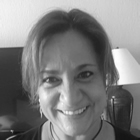 |
| INVITED |
|
 |
| . |
|
|
Monica Lira Cantu
ICN2, Spain
Invited – Plenary Session
After completing a Bachelor’s degree in Chemistry in 1992, Dr Monica Lira-Cantu obtained her Master’s and PhD degrees in Materials Science at the Institut de Ciència de Materials de Barcelona (ICMAB) and the Universitat Autònoma de Barcelona in 1995 and 1997, respectively. She worked as a postdoctoral fellow with Schneider Electric and ICMAB until 1998. From 1999 to 2001 she was a permanent senior staff chemist at ExxonMobil Research & Engineering (formerly Mobil Technology Co) in New Jersey (USA), establishing a group on energy-related applications
|
|
|
|
|
 |
| INVITED |
|
 |
| . |
|
|
Pascal Mailley
CEA, France
Invited – Plenary Session
|
|
|
|
|
 |
| INVITED |
|
 |
| . |
|
|
Pietro Massignan
UPC, Spain
Invited – Plenary Session
Pietro Massignan obtained his Ph.D. from the Niels Bohr Institute in Copenhagen in 2006. During the following years, he has been a postDoctoral fellow at the Institute of Theoretical Physics in Utrecht (the Netherlands), at the Universitat Autònoma de Barcelona (UAB), and at the Institute of Photonic Sciences (ICFO). He has also been a visiting scientist at Ecole Normale Supérieure (ENS) in Paris, and at NORDITA in Copenhagen. In 2014 he was awarded a Ramon y Cajal Fellowship, and in 2020 he joined the faculty at the Universitat Politècnica de Catalunya (UPC), becoming a Professor in Physics. His research focuses on the microscopic theory of ultracold quantum gases, and of semiconducting and photonic systems, with particular emphasis on few- and many-body properties of quantum mixtures, synthetic gauge fields, and topological order.
|
|
|
|
|
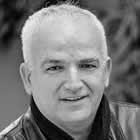 |
| INVITED |
|
 |
| . |
|
|
Arben Merkoci
ICREA/ICN2, Spain
Invited – Plenary Session
Arben Merkoçi is currently ICREA Professor and director of the Nanobioelectronics & Biosensors Group at Institut Català de Nanociencia i Nanotecnologia (ICN2), part of Barcelona Institute of Science and Technology (BIST). After his PhD (1991) at Tirana University (Albania), in the topic of Ion-Selective-Electrodes (ISEs) Dr. Merkoçi worked as postdoc and senior researcher/invited professor in the field of nanobiosensors and lab-on-a-chip technologies in Italy, Spain, USA and since 2006 at ICN2. Prof. Merkoçi research is focused on the design and application of cutting edge nanotechnology and nanoscience based cost/efficient biosensors. The paper/plastic-based nanobiosensors involve integration of biological molecules (DNA, antibodies, cells and enzymes) and other (bio)receptors with micro- and nanostructures/motors and applied in diagnostics, environmental monitoring or safety and security. He has published around 310 peer review research papers (H index: 67 WOS; 82 GS), supervised 30 PhD students and has been invited to give plenary lectures and keynote speeches in around 200 occasions in various countries. Prof. Merkoçi is Co-Editor In Chief of Biosensors and Bioelectronics and member of Editorial Board of other journals. He is co-founder of two spin-off companies, PaperDrop dedicated to nanodiagnostics and GraphenicaLab to electronic printing. See more details on his group and CV at:
https://icn2.cat/en/nanobioelectronics-and-biosensors-group
https://www.icrea.cat/security/files/researchers/files-maintenance/full_cv_amerkoci_0.pdf |
|
|
|
|
 |
| INVITED |
|
 |
| . |
|
|
Jordi Mompart Penina
UAB, Spain
Invited – Plenary Session
Jordi Mompart received his PhD in Physics from the Universitat Autònoma de Barcelona (UAB) in 1999 with the PhD Thesis entitled "Lasing without inversion" and under the supervision of Prof. Ramón Corbalán. He has been a visiting researcher at various universities and research institutes: Universität Münster, Università degli Studi Milano, Texas A&M University, Leibnitz Universität Hannover, Karlsruhe Institute of Technology, and Okinawa Institute of Science and Technology. After a postdoctoral stay at the Leibniz Universität Hannover, where he worked on the use of cold atoms for quantum information purposes, he became associate professor at the UAB. His research interests range from laser physics, conical refraction and quantum optics to cold atoms and quantum information. He is author of more than 100 articles, co-editor of the book “Applied Bohmian mechanics: from nanoscale systems to cosmology”, Pan Stanford Publishing 2012, and holds three patents. He has supervised 8 PhD thesis. Presently, he is the coordinator of the Physics Doctorate program at the UAB, and the UAB coordinator of the Master in Photonics.
|
|
|
|
|
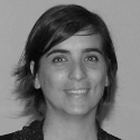 |
| INVITED |
|
 |
| . |
|
|
Núria Montserrat Pulido
IBEC, Spain
Invited – Plenary Session
Dra. Nuria Montserrat became interested in organ regeneration and stem cells during her master and PhD training that finished in 2006. The same year she got a Postdoctoral fellowship from the Fundaçao para a Ciência e Tecnología (Portugal). In 2007 she moved as a post-doctoral researcher at the Hospital of Santa Creu i Sant Pau in Barcelona.
In 2008 she joined the Center of Regenerative Medicine of Barcelona (CMRB) thanks to the support of a Juan de la Cierva fellowship under the direction of Dr. Izpisúa Belmonte. In 2010 she first co-authored how to reprogram cord blood stem cells for the first time (Nature Protocols, 2010). Then she first-coauthor the first work deriving iPSCs with new factors (Cell Stem Cell, 2013). She also collaborated in projects aimed to characterize the genomic integrity of human iPSCs as well as their differentiation towards different lineages for applications in human disease modeling (Stem Cells, 2011; Nature, 2012; Nature, 2012, Nature Communications, 2014). She has first co-authored how the reactivation of endogenous pathways can be artificially reactivated and promote heart regeneration in mammals (Cell Stem Cell, 2014).
Her expertise in the fields of somatic reprogramming and organ regeneration was recognized with an awarded an ERC Starting Grant by 2014 which allowed her to become Junior group leader at the Institute of Bioengineering of Catalonia (IBEC).
|
|
|
|
|
 |
| INVITED |
|
 |
| . |
|
|
Aitor Mugarza
ICREA/ICN2, Spain
Invited – Plenary Session
Prof. Aitor Mugarza graduated in physics in 1997, before earning his PhD in the same field in 2002, both at the Euskal Herriko Unibertsitatea (University of the Basque Country). He was awarded a Marie Curie Fellowship to work as a postdoctoral scientist at the Lawrence Berkeley National Laboratory (USA) and the Institut de Ciència de Materials de Barcelona (ICMAB). He joined the former Catalan Institute of Nanotechnology in 2007 with a Ramón y Cajal Fellowship. In 2013 he became group leader of the Atomic Manipulation and Spectroscopy Group at the recently constituted ICN2. He has been an ICREA Research Professor since 2015.
|
|
|
|
|
 |
| INVITED |
|
 |
| . |
|
|
Albert Mundet
Barça Innovation Hub, Spain
Invited – Plenary Session
|
|
|
|
|
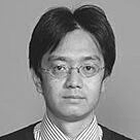 |
| INVITED |
|
 |
| . |
|
|
Tadaaki Nagao
MANA/NIMS, Japan
Invited – Plenary Session
Dr. Tadaaki Nagao has received his Dr.Sc. (physics) from Waseda University in 1995 with his study on the development for surface phonon spectroscopy and its application for crystal surfaces and epitaxial films. He served as a research associate at Waseda university (1994), and then at the Department of Physics at the University of Tokyo (1994-2001). Then he joined as an associate professor at Institute for Materials Research at Tohoku University (2001-2004) and started the project on plasmons in atomic-sheets and atomic-wires on semiconductor surfaces. Later, he has joined National Institute for Materials Science in 2004, and currently serving as a Group Leader and MANA-Principal Investigator of Photonics Nano-Engineering group at MANA. His research interest lies in elucidating new optical functionalities at the surfaces/interfaces of materials and in nano-devices, and applying them for radiative heat energy transfer as well as for photoelectric conversion
|
|
|
|
|
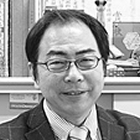 |
| INVITED |
|
 |
| . |
|
|
Tomonobu Nakayama
MANA/NIMS, Japan
Invited – Plenary Session
|
|
|
|
|
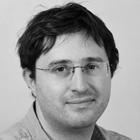 |
| INVITED |
|
 |
| . |
|
|
Pierre Nataf
LPMMC/CNRS, France
Invited – Plenary Session
Pierre Nataf graduated in theoretical physics in 2008 at ENS Paris, before getting his PhD in 2011 under the supervision of Prof. Cristiano Ciuti at Paris 7 with whom he studied Circuit QED. Then He became a post-doc of Prof. F. Mila (EPFL Lausanne) where he developed numerical methods to investigate Heisenberg SU(N) models in ultra-cold atoms. After a post-doctoral fellowship in the group of Gianni Blatter at ETHZurich, he moved to CEA Grenoble where he studied multi-terminal Josephson junctions with Prof. J. Meyer and M. Houzet. Finally, he became permanent CNRS researcher in 2019 at LPMMC Grenoble.
|
|
|
|
|
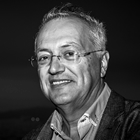 |
| INVITED |
|
 |
| . |
|
|
Xavier Obradors
ICMAB, Spain
Invited – Plenary Session
Xavier Obradors is a Research Professor and Director of the Institut of Materials Science of Barcelona (CSIC). His scientific interests include materials preparation with controlled micro/nano structures and the comprehension of the physical mechanisms underlying the superconducting, magnetic and electronic properties of nanostructured materials. He has published more than 600 articles (> 12.700 citations, h=51) and he has filed more than 12 patents. He has been Principal Scientist of 13 National projects and 21 EU projects (4 coordinated). Member of the Editorial Board of Superconductor Science and Technology and Editor of Physica C. Past President of European Society of Applied Superconductivity. He has supervised 25 PhDs, he has given around 100 Plenary and Invited Conferences and he has served in many scientific evaluation committees.
|
|
|
|
|
 |
| INVITED |
|
 |
| . |
|
|
Xavier Obradors
ICMAB, Spain
Invited – Plenary Session
Xavier Obradors is a Research Professor and Director of the Institut of Materials Science of Barcelona (CSIC). His scientific interests include materials preparation with controlled micro/nano structures and the comprehension of the physical mechanisms underlying the superconducting, magnetic and electronic properties of nanostructured materials. He has published more than 600 articles (> 12.700 citations, h=51) and he has filed more than 12 patents. He has been Principal Scientist of 13 National projects and 21 EU projects (4 coordinated). Member of the Editorial Board of Superconductor Science and Technology and Editor of Physica C. Past President of European Society of Applied Superconductivity. He has supervised 25 PhDs, he has given around 100 Plenary and Invited Conferences and he has served in many scientific evaluation committees.
|
|
|
|
|
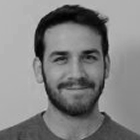 |
| INVITED |
|
 |
| . |
|
|
Eduardo Prieto Araujo
UPC, Spain
Invited – Plenary Session
|
|
|
|
|
 |
| INVITED |
|
 |
| . |
|
|
Victor Puntes
ICN2, Spain
Invited – Plenary Session
Prof. Puntes completed his undergraduate studies in chemical engineering and materials science at the Université Louis Pasteur Strasbourg (France) and the Universitat Autonoma de Barcelona (UAB). In 1998, he earned his PhD in physics from the Universitat de Barcelona (UB), working with Prof. Xavier Batlle and Prof. Amilcar Labarta on giant magnetoresistance in granular alloys. He then spent over three years at the University of California, Berkeley (USA) and the Lawrence Berkeley National Laboratory (LBNL, USA) in the groups led by Prof. Paul Alivisatos and Prof. Kannan Krishnan, working on the synthesis and control of nanostructures. In 2003 he returned to Catalonia with a Ramon y Cajal research grant at the UB. In 2005 he obtained an ICREA professorship at the then ICN (now ICN2) to create the Inorganic Nanoparticles Group, which he currently leads.
|
|
|
|
|
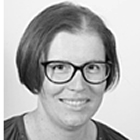 |
| INVITED |
|
 |
| . |
|
|
Camille Raillon
CEA, France
Invited – Plenary Session
Camille Raillon received her M.S. in Electrical Engineering with Honors in 2007 from Grenoble Institute of Technology (INPG). She did her Master’s thesis at the University of Sherbrooke on fast prototyping of microfluidic channels in SU-8 photoresist for BioMEMS thanks to a Région Rhône-Alpes grant. After graduating, Camille worked as a characterization engineer for a year in a MEMS-based piezoresistive pressure sensors company in Silicon Valley, California. She then moved back to Europe for a Ph.D. in bioengineering, working at EPFL in Prof. Aleksandra Radenovic’s laboratory and at UNIL in Prof. Nouria Hernandez laboratory. There, her work focused on single‐molecule study of protein-DNA complexes using nanopore sensing.
|
|
|
|
|
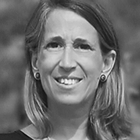 |
| INVITED |
|
 |
| . |
|
|
Imma Ratera
ICMAB/CSIC, Spain
Invited – Plenary Session
Imma Ratera, Bachelor’s degree in Chemistry, PhD in Materials Science and Postdoc at the Surface Science Division of the Lawrence Berkeley National Laboratory (USA), is a Permanent Researcher at the Nanomol Department of the Institute of Materials Science of Barcelona (ICMAB-CSIC) since 2008. Her scientific interests include design, synthesis and processing of novel multifunctional molecular materials and biomaterials. Specifically, she is interested in the properties of these molecules once nanostructured as self-assembled monolayer (SAM), organic nanoparticle (ONP) or hydrogels towards applications in different fields such as molecular electronics and optoelectronics or as biomaterials for diagnosis, cell guidance or therapy among others. She has published over 100 articles, several book chapters and filled three patents.
|
|
|
|
|
 |
| INVITED |
|
 |
| . |
|
|
Cecile Repellin
LPMMC/CNRS, France
Invited – Plenary Session
Cécile Repellin is a CNRS researcher at Laboratoire de Physique et Modélisation des Milieux Condensés (LPMMC) in Grenoble since 2019. She obtained her PhD in 2015 from Ecole Normale Supérieure, Paris, and was subsequently a postdoc at the Max-Planck-Institute for the Physics of Complex Systems in Dresden (2015 - 2017) and a Marie Sklodowska-Curie Fellow at MIT (2017 - 2019). Cécile Repellin's research focuses on strongly correlated quantum matter, from 2D quantum materials to cold atoms in optical lattices, with a special interest for topological order, numerical methods, and quantum magnetism.
|
|
|
|
|
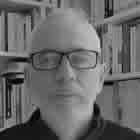 |
| INVITED |
|
 |
| . |
|
|
Nicolas Retière
Université Grenoble Alpes, France
Invited – Plenary Session
Nicolas Retière serves as Professor of Electrical Engineering at the University Grenoble Alpes since 2006. He has hold several responsibility positions at the University. He is currently director of the research department "Physics, Engineering, Materials science" of University Grenoble Alpes. His principal research interests are advanced modelling, analysis and design of power systems. He published 90 articles in international journals or proceedings. He has been coordinator or partner in more than 20 collaborative research projects funded by French research agencies, Europe or industrial partners.
|
|
|
|
|
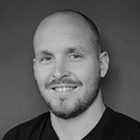 |
| INVITED |
|
 |
| . |
|
|
Nicolas Roch
Neel Institute-CNRS, France
Invited – Plenary Session
|
|
|
|
|
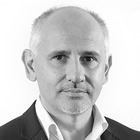 |
| INVITED |
|
 |
| . |
|
|
Stephan Roche
ICREA/ICN2, Spain
Invited – Plenary Session
Prof. Stephan Roche is a theoretician with more than 25 years’ experience in the study of transport theory in low-dimensional systems, including graphene, carbon nanotubes, semiconducting nanowires, organic materials and topological insulators.
He has published more than 200 papers in journals such as the Review of Modern Physics, Nature Physics, Nano Letters and Physical Review Letters and he is the co-author of the book titled “Introduction to Graphene-Based Nanomaterials: From Electronic Structure to Quantum Transport” (Cambridge University Press, 2020-second edition). He received the qualification to supervise PhD students from the Université Joseph Fourier (Grenoble, France) in 2004, and since then he has supervised more than ten PhD students and about 25 postdoctoral researchers in France, Germany and Spain. In 2009 Prof. Roche was awarded the Friedrich Wilhelm Bessel Research Award by the Alexander Von-Humboldt Foundation (Germany) and, since 2011, he has been actively involved in the European Graphene Flagship project as deputy leader of the Spintronics Work Package (WP). He will serve as leader of this WP from April 2020 till March 2023, as well as Division leader of the Graphene Flagship.
|
|
|
|
|
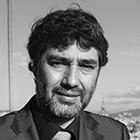 |
| INVITED |
|
 |
| . |
|
|
LLuis Rovira
CERCA, Spain
Invited – Plenary Session
Lluís Rovira (Girona, May 1968) is Director of CERCA, public institution devoted to coordinate, support and facilitate the research activity of 40 R&D Institutes in the area of Barcelona. He’s PhD on Biology by the Univ. of Barcelona, 1998. His current research activity concerns Bibliometric analysis. His responsibility includes the strategic advice and actions implementation, in order to improve solutions for R&D institutes at economic, scientific and legal level. He’s worked on research management and evaluation since 1992 at the Generalitat of Catalonia. He’s been Evaluation Director and Deputy Director in AGAUR (Catalan Agency for University and Research Grants), and Deputy Director General of Research. He is responsible for the CERCA periodic ex post evaluation of R&D centres, from 2012 up to date. Currently he is starting a new initiative of impact assessment of CERCA centres research through the analysis of case studies.
|
|
|
|
|
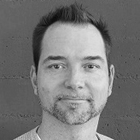 |
| INVITED |
|
 |
| . |
|
|
Samuel Sanchez
IBEC, Spain
Invited – Plenary Session
Samuel is since 2015 a Research Professor at the Institute for Bioengineering of Catalonia (IBEC) and the Catalan Institute for Research and Advanced Studies (ICREA) in Barcelona, Spain. Currently he acts as Deputy Director for the Internationalization of IBEC. Before that, he worked at the Max Planck Institute for Intelligent Systems in Stuttgart, IFW Dresden, Germany, MANA-NIMS in Japan. His work spans from fundamental aspects of catalytic and biocatalytic nano-micromotors, 3D Bioprinted BioBOTS, electrochemical biosensors to applications in biomedical and environmental fields. He received several awards and recognitions such as the MIT TR35 as Top Innovator Under 35 in the Spanish edition, Guinness World Records in 2010 and 2017, the Princess of Girona Scientific Research Award 2015 and the National Research Award for Young Talent 2016 by the Catalan Foundation of Research among others. He received the ERC-Starting Grant in 2013, and two ERC-Proof-of-concept in 2016 and 2017. He has published about 130 papers with h-index of 48 and he has filed 6 patents.
|
|
|
|
|
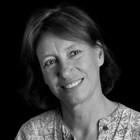 |
| INVITED |
|
 |
| . |
|
|
Anna Sanpera Trigueros
UAB, Spain
Invited – Plenary Session
I graduated at Universitat Autònoma de Barcelona in 1986. From 1988-1992 Ph.D fellow (FPI) from the Ministerio de Educación y Ciencia at the Universitat Autònoma de Barcelona. In 1993, I moved to the University of Oxford, first as a research fellow and then as Fleming fellowship. In 1996, I moved to Saclay (Paris) as an European Post-Doctoral Research Fellow. In 1998 I was appointed research fellow at the Leibninz University, in Hannover (Germany) where I did my habilitation and became Professor Assistant. Since 2005 I am an ICREA Research Professor. My research interests are quite interdisciplinary and range from quantum information theory, to quantum gases and more recently condensed matter. Presently, I am working in the interface between quantum information and condensed matter. I have stable collaborations with different research groups both at national and international level. Otherwise I am fond of literature, sports and children.
|
|
|
|
|
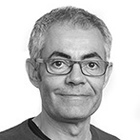 |
| INVITED |
|
 |
| . |
|
|
José Santiso
ICN2, Spain
Invited – Plenary Session
Dr José Santiso earned his degree in Physics at the Universitat Autònoma de Barcelona (UAB) in 1988, later obtaining his PhD from the Universitat de Barcelona (UB) in 1993. After his doctoral studies, he worked as a visiting scientist at Cambridge University (UK) from 1994 to 1996. He then joined the Institut de Ciència de Materials de Barcelona (ICMAB) as a research associate and became a CSIC tenured scientist in 2002. In 2007 he moved to the former CIN2 as the leader of the Pulsed Laser Deposition and Nanoionics Group, which later became the ICN2 Nanomaterials Growth Unit.
|
|
|
|
|
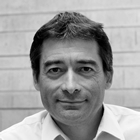 |
| INVITED |
|
 |
| . |
|
|
Jean-Luc Schanen
Grenoble INP, France
Invited – Plenary Session
Jean-Luc Schanen (Ms 1990, Ph.D 1994), is Professor at Grenoble-INP Univ Grenoble Alpes since 2003. He was deputy director of Engineering School Ense3 (Energy Water, Environment) from 2008 to 2020, and is leading the Power Electronics Research Group of G2ELab since 2015. His research activities are focused on Power Electronics Automatic Design Methodology, including ElectroMagnetic Compatibility aspects. He has supervised more than 30 Ph.D students (6 current), among them 6 international co-supervision. Jean-Luc is IEEE Senior Member (2003), associate Editor for transactions on Power Electronics and Industry Application Societies, and involved in several conferences organisation, especially IEEE-ECCE (Technical Program Chair in 2018, 2021). He has issued more than 50 Journal papers and 200 conference papers, including invited talks or keynotes.
|
|
|
|
|
 |
| INVITED |
|
 |
| . |
|
|
Maria Soler
ICN2, Spain
Invited – Plenary Session
Dr. Maria Soler received her PhD in Biochemistry and Biomedicine in 2015, under the supervision of Prof. Laura M. Lechuga from the Catalan Institute of Nanoscience and Nanotechnology (ICN2, Barcelona, Spain). Her PhD dissertation focused on the development of nanoplasmonic biosensors for clinical point-of-care diagnostics, and it was recognized with the Extraordinary Doctorate Award (UAB) and the Pioner 2015 Award, granted to thesis with special interest in technology transfer and commercialization. Then, Dr. Soler moved to the Ecole Polytechnique Federale de Lausanne (EPFL) for a postdoctoral stage in the laboratory of Prof. Hatice Altug (2015-2018). During this time, she was in charge of the bioanalytical applications research line, working in groundbreaking projects for the application of nanoplasmonic biosensors for single-cell activity monitoring. In 2018, Dr. Soler returned to Spain, where she is working as a Senior Researcher at the ICN2. Currently, she is leading a brand-new research line for developing novel nanophotonic sensors for immunology-based diagnostics and personalized therapy applications.
|
|
|
|
|
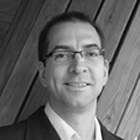 |
| INVITED |
|
 |
| . |
|
|
Jordi Sort
UAB, Spain
Invited – Plenary Session
Prof. Jordi Sort received his PhD Degree in Materials Science from Universitat Autònoma de Barcelona (UAB) in 2002 (Extraordinary Award). The topic of his PhD dissertation was the study of magnetic exchange interactions in ferromagnetic-antiferromagnetic systems. He worked for two years as Postdoctoral Researcher at the SPINTEC Laboratory (Grenoble) and subsequently stayed six months at Argonne National Laboratory (USA). He also performed long-term secondments at the Grenoble High Magnetic Fields Laboratory (five months) and at Los Alamos National Laboratory (four months). At present, Prof. Sort leads the “Group of Smart Nanoengineered Materials, Nanomechanics and Nanomagnetism (Gnm3)” at UAB, which focuses its research activities on the synthesis of a wide variety of functional materials (electrodeposited films, lithographed structures, porous materials, bulk metallic glasses, nanocomposites) and the study of their structural, mechanical, magnetic and thermal properties. He has supervised 15 PhD students and has published more than 320 papers, which have been cited more than 9000 times (h = 46 in ISI Web of Science). He was also the Principal Investigator of the SPIN-PORICS ERC Consolidator Grant and has been awarded the Duran Farell Award in 2020.
|
|
|
|
|
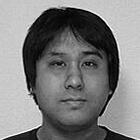 |
| INVITED |
|
 |
| . |
|
|
Seiya Suzuki
NIMS, Japan
Invited – Plenary Session
Seiya Suzuki obtained his Ph.D. from Toyota Technological Institute (TTI) in 2015, with a thesis of the growth of graphene by chemical vapor deposition. As a postdoctoral researcher at TTI, he developed and studied chemically stable surface-enhanced Raman scattering substrates using graphene. Thereafter, he joined the International Center for Young Scientists (ICYS) at the National Institute for Materials Science (NIMS) as an ICYS research fellow in 2018. Currently, he works on the growth of 2D materials at interfaces at ICYS.
|
|
|
|
|
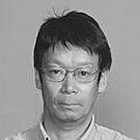 |
| INVITED |
|
 |
| . |
|
|
Taniguchi Takashi
MANA/NIMS, Japan
Invited – Plenary Session
Dr Takashi Taniguchi is Fellow of National Institute for Materials Science, Tsukuba Japan. He received his PhD from Tokyo Institute of technology. His current research interests concern materials synthesis under high pressure and high temperature by using belt-type high pressure apparatus. Especially studies for boron nitride crystals as superhard and wideband gap materials are major topics in his research activity.
|
|
|
|
|
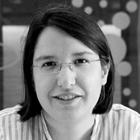 |
| INVITED |
|
 |
| . |
|
|
Leticia Tarruell
ICFO, Spain
Invited – Plenary Session
Leticia Tarruell studied physics in Madrid and Paris. She obtained her PhD in 2008, with a thesis on fermionic superfluidity at Ecole Normale Supérieure Paris. As a postdoc, she studied Fermi gases in optical lattices at ETH Zurich. After working as Chargée de Recherche CNRS at Institut d’Optique in Bordeaux, she joined ICFO as Group Leader in 2013. The Ultracold Quantum Gases group that she has established there performs quantum simulation experiments with mixtures of potassium Bose-Einstein condensates and ultracold strontium gases. She was awarded a young investigator prize of the Spanish Royal Physics Society in 2015, a Ramón y Cajal fellowship in 2016, and an ERC Consolidator Grant in 2020.
|
|
|
|
|
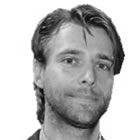 |
| INVITED |
|
 |
| . |
|
|
Klaas-Jan Tielrooij
ICN2, Spain
Invited – Plenary Session
Klaas-Jan Tielrooij is Junior Group Leader, heading the Ultrafast Dynamics in Nanoscale Systems group, at the Catalan Institute of Nanoscience and Nanotechnology (ICN2), since October 2018. He is also Visiting Professor at the Graduate School of Excellence Material Science in Mainz (Germany) since July 2018. He obtained his Ph.D. at the University of Amsterdam (the Netherlands) in December 2010 with a thesis that was awarded the FOM Physics Thesis Prize 2011. He was awarded an ERC Starting Grant in 2018, and a Ramon y Cajal Fellowship in 2019. Dr Tielrooij has authored more than 45 peer-reviewed publications, with over 5,800 citations. His H-index is currently 29. Some of his current research interests are nanoscale heat transport, terahertz technologies and quantum materials.
|
|
|
|
|
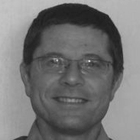 |
| INVITED |
|
 |
| . |
|
|
Pascal Tixador
Institut NEEL CNRS/UGA, France
Invited – Plenary Session
|
|
|
|
|
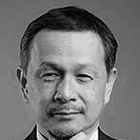 |
| INVITED |
|
 |
| . |
|
|
Koichi Tsuchiya
ICYS/NIMS, Japan
Invited – Plenary Session
Dr. Koichi Tsuchiya is a Managing Director of the International Center for Young Scientists (ICYS) at National Institute for Materials Science (NIMS). He obtained his Ph. D. in Materials Science and Engineering at Northwestern University in 1991. From 1991 to 1997, he was Assistant Professor at the Department of Applied Physics at Hokkaido University. He was a Lecturer and Associate Professor at the Department of Production Systems Engineering of Toyohashi University of Technology from 1997 to 2007. He joined NIMS in 2007. His research interests are in structure-property relation in metallic structural and functional materials, such as, Ti alloys, steels, shape memory alloys, intermetallics and metallic glasses. He was awarded the Murakami-Memorial Award from Japan Institute of Metals and Materials in 2020, the Mishima Award from the Iron and Steel institute of Japan in 2014, and Research Progress Award from the Japan Society of Powder in 2002, and Powder Metallurgy and the Takagi Award from The Society of Non-Traditional Technology in 2002.
|
|
|
|
|
 |
| INVITED |
|
 |
| . |
|
|
Sergio O. Valenzuela
ICREA/ICN2, Spain
Invited – Plenary Session
Prof. Sergio Valenzuela obtained his PhD in physics in 2001 at the Universidad de Buenos Aires (Argentina) and held research positions at Harvard University and the Massachusetts Institute of Technology (MIT). Since July 2008 Prof. Valenzuela has been an ICREA research professor and leader of the ICN2 Physics and Engineering of Nanoelectronic Devices Group. His research is focused on the unique properties of materials with nanoscale dimensions, motivated by both their intrinsic scientific interest and their potential for advanced electronic applications. His work encompasses spintronics, quantum computation with superconducting circuits and nanoelectromechanical systems (NEMS). Together with his collaborators, he has pioneered the use of non-local devices to study the spin Hall effect of thermopiles to isolate the magnon drag in ferromagnetic materials, and implemented novel qubit control and spectroscopy methods. Prof. Valenzuela was awarded the 2001 Giambiagi prize and the 2009 IUPAP Young Scientist Prize in Magnetism for his contributions to the field of spintronics, as well as an ERC Starting Grant in 2012. He has authored over 50 articles (Nature, Science, Reviews of Modern Physics, Nature Materials, Nature Physics, Physical Review Letters, among others), three patents, and five books or book chapters.
|
|
|
|
|
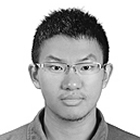 |
| INVITED |
|
 |
| . |
|
|
Ying-Chiao Wang
NIMS, Japan
Invited – Plenary Session
Dr. Ying-Chiao Wang is currently an ICYS Research Fellow at International Center for Young Scientists (ICYS), National Institute for Materials Science (NIMS). Ying-Chiao Wang received his PhD in Material Science from National Taiwan University in 2015. Afterwards he joined distinguished young researcher position at the Ningbo Institute of Material Technology & Engineering, Chinese Academy of Sciences from 2016-2018. After that, he worked as a postdoctoral researcher at the Department of Electrical Engineering and Computer Science, School of Engineering, Nagoya University in 2018. His research interests have focused on the development of solution‐processed nanomaterials and their photovoltaic applications, mainly based on perovskite solar cells, dye‐sensitized solar cells and photodetectors.
|
|
|
|
|
| |
|
|
|
|
|
|
|
© Phantoms Foundation 2021 |
|
|
|